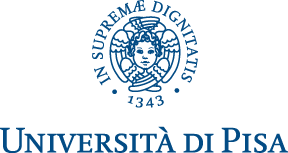

Sinapsis 2025
25, 26 y 27 de septiembre Pisa, Italia
25 y 26 de septiembre Cusco, Perú
Evento presencial
Contamos cada segundo para nuestro encuentro

Bienvenida
¡Únete a Sinapsis, el encuentro anual de científicos peruanos en Europa!
Sinapsis es un evento dinámico que reúne a científicos peruanos y europeos para intercambiar conocimientos sobre los últimos avances en ciencia, tecnología e innovación. Con charlas plenarias, presentaciones orales, paneles de discusión y sesiones de pósters, el evento ofrece un entorno ideal para establecer contactos, explorar colaboraciones y aprender de destacados expertos en diversas disciplinas.
En esta IX edición, Sinapsis se realizará de forma presencial en dos sedes: Pisa (Italia) y Cusco (Perú), conectadas remotamente. Pisa es una ciudad reconocida por su historia académica y científica, además de su encanto cultural, mientras que Cusco, cuna del Imperio Inca y centro de investigación en biodiversidad y sostenibilidad, ofrece un entorno excepcional para el intercambio científico.
Forma parte de esta edición de Sinapsis y únete a una red global de científicos comprometidos con el avance de la ciencia y la tecnología en el Perú.
¡Te esperamos en Sinapsis!

Foto grupal - Sinapsis 2024, sede Düsseldorf, Alemania
Nuestras sedes 2025
Un evento unido por dos sedes y culturas excepcionales
De los Andes a la Toscana
Pisa, Italia y Cusco, Perú




Testimonios

Dr. Juan Z. Dávalos
"SINAPSIS es un hito significativo en el desarrollo de la ciencia peruana y también un puente estratégico para conectar el desarrollo científico peruano con centros de excelencia en el mundo. Este evento es además una voz de prestigio internacional para potenciar el desarrollo de la ciencia en el Perú (…)"

Prof. Harald Helfgott
"Estuve en los dos primeros SINAPSIS, en Paris y en Berlín. Quedé muy impresionado tanto por lo interesantes y bien expuestos que fueron muchos de los trabajos, como por el ambiente de entusiasmo y fraternidad. Conocí a jóvenes peruanos de muchas ramas de la ciencia, algunas lejanas para mí(...)"

Embajador Mendez, MM.RR.EE.
"El apoyo que presta la Cancillería articula de forma concreta la relación que el Estado debe mantener estrechamente con los científicos, tanto para apoyarlos en su labor como para que éstos continuen su vinculación con el Estado peruano y con otros científicos peruanos, dentro y fuera de nuestras fronteras. (...)"

Elmer Schialer
Embajador del Perú en Alemania
"(...) La importancia de Sinapsis reside en que, además de promover la interrelación de sus miembros, también es un espacio fértil para articular su preocupación por contribuir al desarrollo científico y tecnológico de nuestro país desde sus centros de investigación (...)"
.png)